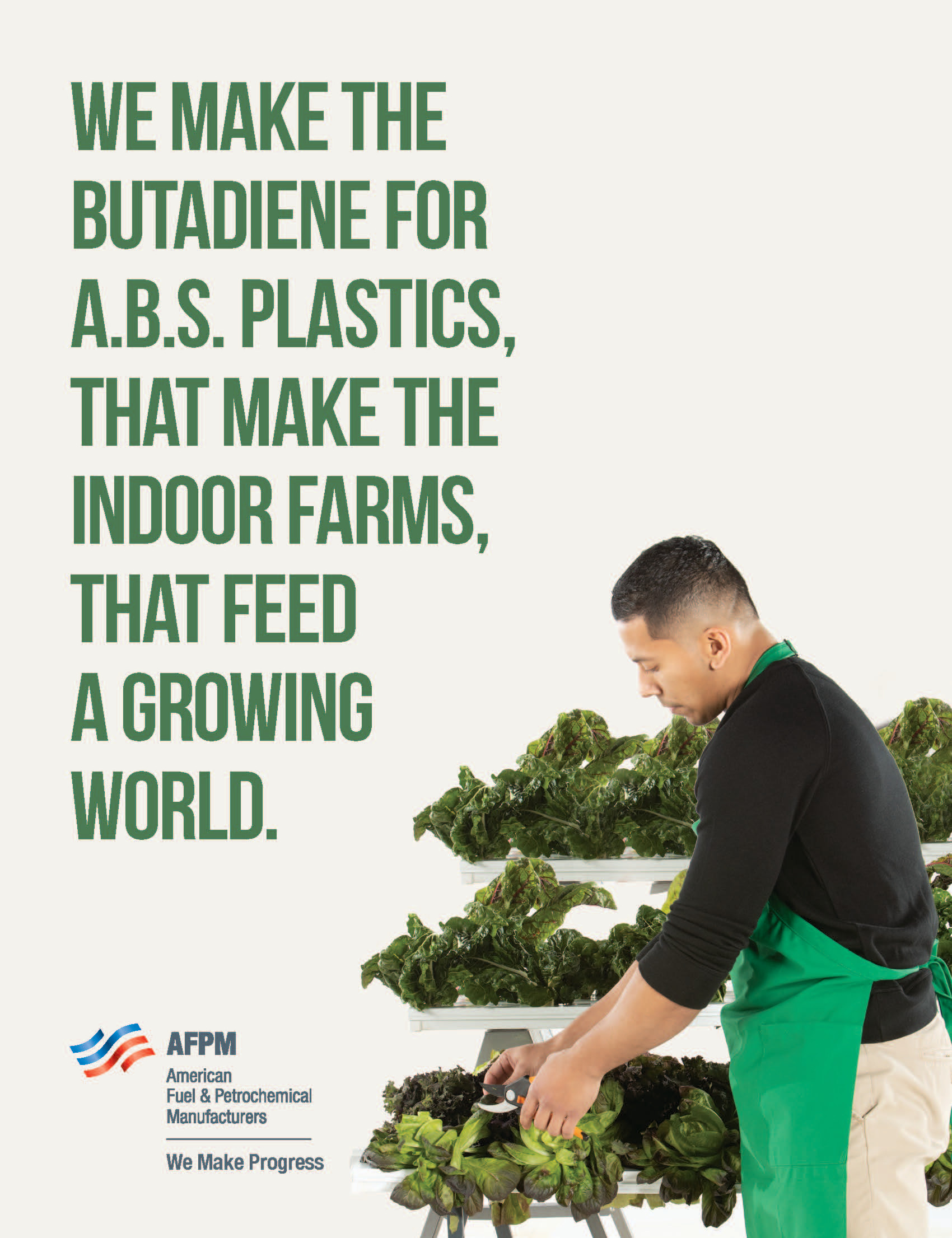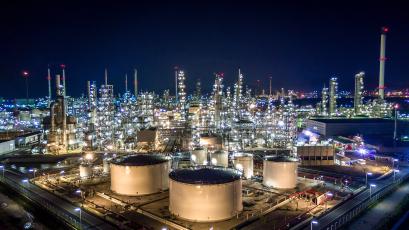With the global population rising and a decline in arable land for crop production, people are looking for solutions to feed a growing world.
Hydroponic farming, a technique for growing plants without any soil and with minimal water, is one high-tech solution that’s revolutionizing access to nutrition and offering hope for the future. Hydroponic farming is made possible by the use of advanced, engineered plastics enabled by petrochemicals.
In a contained hydroponic system, limited amounts of nutrient-rich water come in direct contact with exposed plant roots. Temperature controlled hydroponic farms have a year-round growing season and allow fresh produce to bloom in crowded urban areas and food deserts, minimizing the distance from plant to plate.
How are petrochemicals involved in hydroponic farming?
A petrochemical known as butadiene is used to make UV-stable Acrylonitrile-Butadiene-Styrene terpolymer, also known as ABS plastic.
Sheets and pipes of ABS plastic are used in the construction of many hydroponic growing systems, sought out because ABS is lightweight, durable over time and won’t corrode.
How is hydroponic farming advancing agriculture and food production?
The United Nations expects the global population to reach 9.8 billion by 2050. To feed all those people without changing the way we farm will require new arable acreage larger than the landmass of Brazil, according to Dr. Dickson Despommier, Columbia University emeritus professor of public and environmental health and author of “The Vertical Farm: Feeding the World in the 21st Century.” There simply aren’t enough arable acres out there to do the job.
Where freshwater is concerned, today 70 percent goes straight into outdoor crop production. Dr. Despommier says “hydroponic systems use 60-70 percent less to grow the same amount of crop.”
Hydroponic farming is an agricultural equalizer, proving you don’t need to live in the heartland or have “fertile soil” to enjoy locally grown, fresh food. With help from plastics made from petrochemicals, hydroponic farming is booming in cities and rural areas, and it’s paving the way for the literal rise of vertical farms around the world—farms that can reduce stress on the environment and resources and help to feed 10 billion people in years to come. Keep your eye out for other stories on how advanced materials made from petrochemicals are revolutionizing farming.

Learn more about how U.S. fuel and petrochemical manufacturers are making life easier, safer and more productive at www.WeMakeProgress.org.


